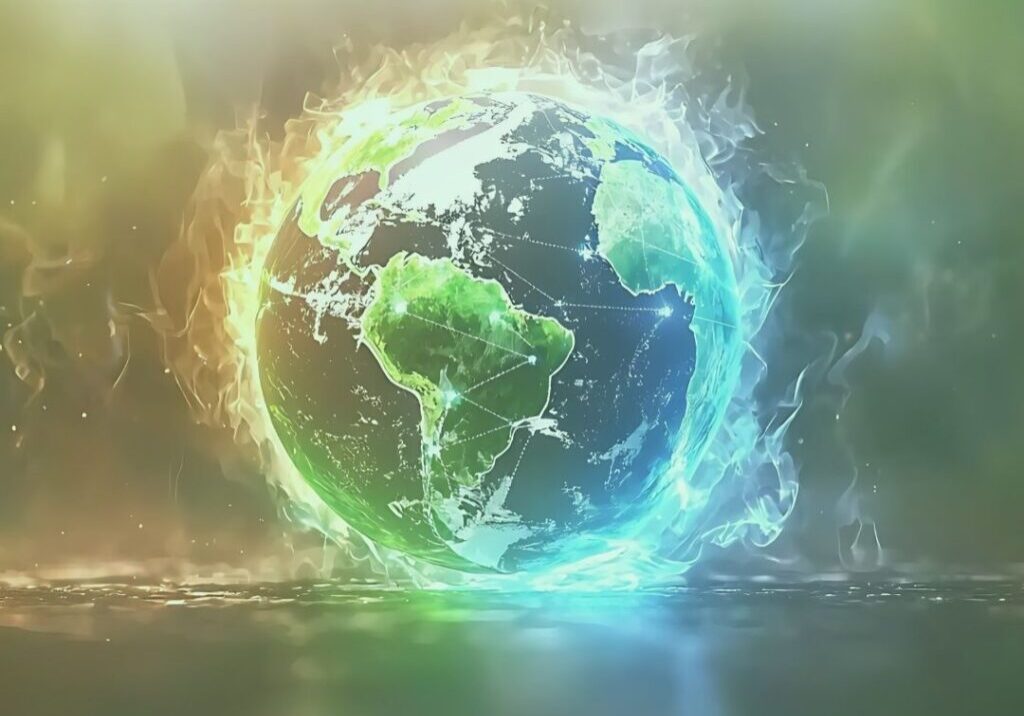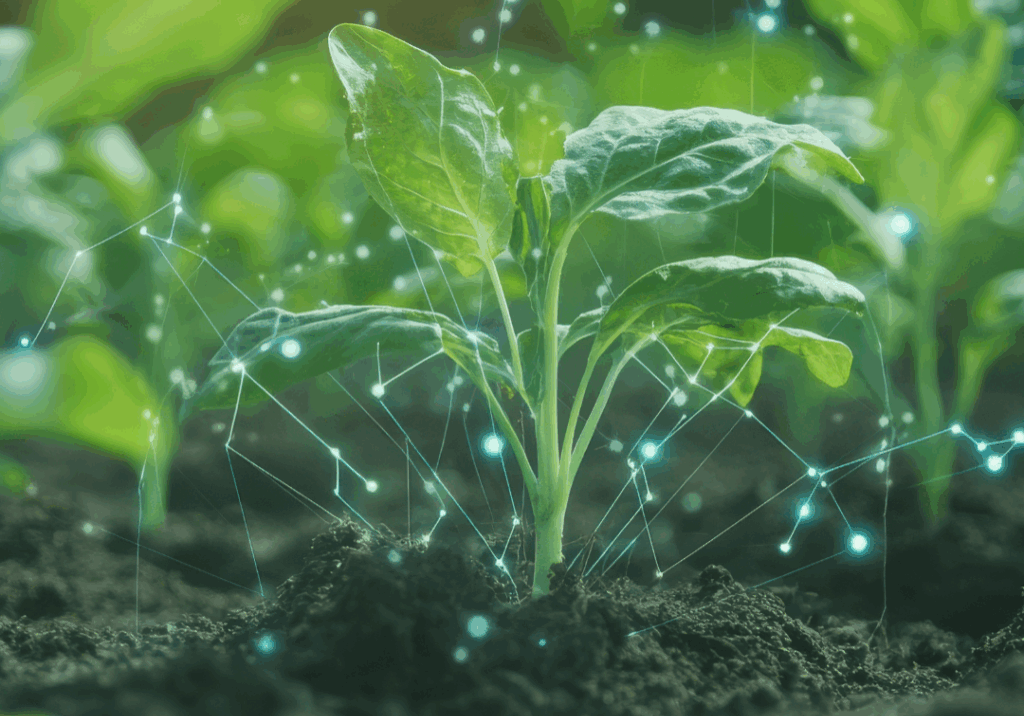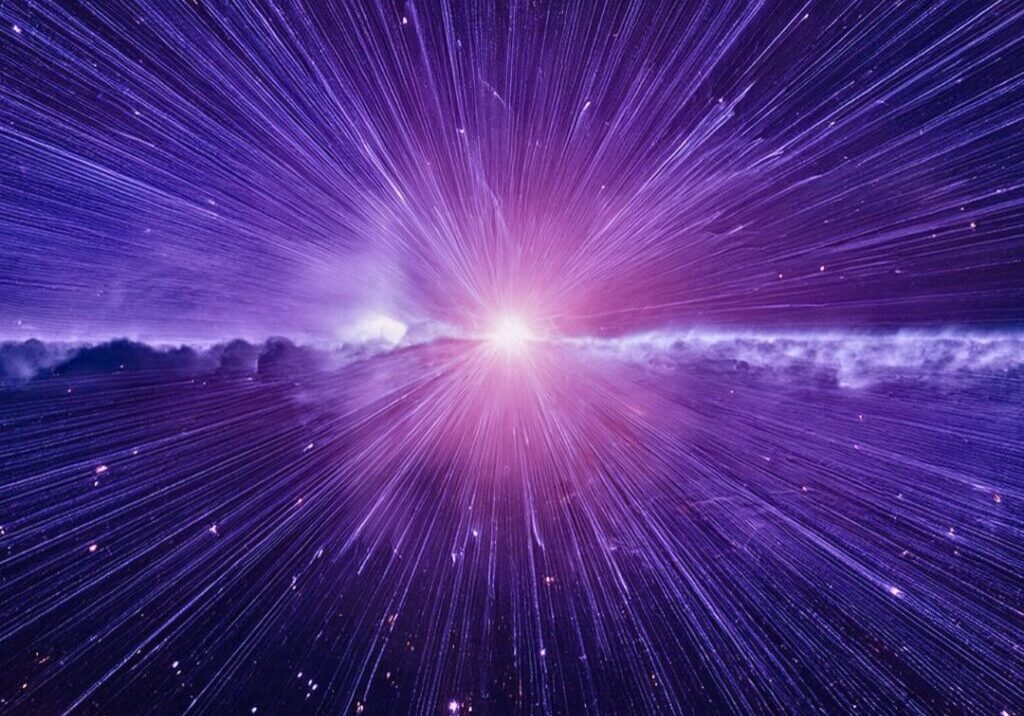The 2020 COVID-19 Pandemic: What Would Teilhard Say?
By now the world has grown accustomed to the fact that the COVID-19 virus has made its way around the globe. Thanks to the internet and the constant news feeds, we can track the numbers afflicted with the virus and those who have succumbed to its lethal presence. There are all sorts of theories as to why this pandemic emerged in the first place, from the bats of Wuhan to God’s wrath on a sinful world. But Teilhard de Chardin would take a different view of our present crisis. For one, he viewed all life in evolution and interpreted world events in terms of change and complexity. Since life on earth is still in formation, suffering and natural disasters are bound to occur. This does not dismiss our potential role in helping to unleash the deadly pathogen through neglect of the earth and overconsumption, but it does signal a significant shift in our world.
Teilhard was aware that deadly events have marked evolution for billions of years. “Real pain entered the world with man,” he said, “when for the first time a reflective consciousness became capable of observing its own diminution. Only when we became aware of suffering and death did we begin to experience evil.” Prior to the emergence of self-reflective consciousness, cataclysmic events were simply part of natural evolution. The 4.2 billion year old history of the earth should give us reason to hope that a deadly pathogen does not have the last word on life. But there are lessons to be learned.
We humans emerge from a long process of evolution; we are each a personalized self-reflective expression of the universe. We cannot blindly assume the world to be ours to control or manipulate; rather we are to be conscious that we are part of a cosmic whole. The universe is our home, our “womb-mother,” to use Teilhard’s expression. Teilhard viewed suffering and creativity as simultaneous movements within this overall process of life. From the point of nature, life is consistently open to more life. Teilhard saw a powerful presence in nature that accounts for this absolute openness to life; this presence is God Omega. The power of love to sustain life and to move life through suffering and death toward more life is the absolute horizon of life itself, which is God.
We are co-creators with the God in a world that is still being created and thus the power of God is powerless without us. Love is not abstract; it acquires power only in relationships. This is why Teilhard wants us to “see” the power of love in our midst, in the same way that Jesus invited his disciples to “see,” to recognize what is taking place in this moment, in the miracle of life. Then we must unite with what we see. We have many examples of love at present in the front-line workers tending to the victims of the pandemic, the hospital personnel and those sustaining them with food and supplies, as well as warehouse workers, grocery store workers and those delivering our goods. Our world does not lack in individual love; what it lacks is a collective will to love, that is, a global love reflected in economic structures, political systems and social communities.
Teilhard would view this pandemic as an opportunity to harness the energies of love in new ways. Every act of suffering in his view is an invitation to a new creative moment, a wake-up call that something old is breaking down and something new is taking place in our midst. Our global pandemic is marked by the reality that information is no longer local. Our lines of complexity have created a global world. Whatever takes place from now on will affect the entire world. In this respect, returning to “business as usual” shows a blind eye to the evolutionary moment we are in. Teilhard was aware that the energies of creativity bring with them a certain terror, a not-knowing what the outcome will be. Hence he advocated radical trust in the inner presence of God and the holiness of the world. In his “Mass on the World,” he wrote:
Whether we like it or not by power and by right you are incarnate in the world. . . My God, I prostrate myself before your presence in the universe which has now become living flame. . . It is a terrifying thing to have been born: I mean, to find oneself, without having willed it, swept irrevocably along on a torrent of fearful energy which seems as thought it wished to destroy everything it carries with it [Mass on the World, 29]
There is a certain terror of love; the power of the other places demands on the self in unexpected ways; yet the Christian path is the act of responsible love, acting in love from the place of the other. The type of love that builds the world into unity is costly love. In a world where God is seeking to rise up through us in love, selfish love will bear terrible consequences for innocent victims. In this respect, we need to be constantly reminded that we are not the masters of our fate. Maybe internet religion and a new sense of the royal priesthood come at an opportune time. In a sense every person is a priest when her or his life is offered up on the paten of life’s sufferings and challenges; every person can offer up his or her life on the altar of the earth. For the whole earth is a Eucharistic field of Christ’s body and blood. Teilhard wrote:
What I want, my God, is that by a reversal of forces which you alone can bring about, my terror in face of the nameless changes destined to renew my being may be turned into an overflowing joy at being transformed into you. I wonder anxiously where life is leading me. . . May this communion of bread with the Christ clothed in the powers which dilate the world, free me from my timidities and my heedlessness. In the whirlpool of conflicts and energies out of which must develop my power to apprehend and experience your presence, I throw myself, my God, on your word. [Mass on the World, 30]
In the face of terror, darkness and the unknown, Teilhard had consummate trust in the presence of God’s absolute love, a love that would not fail us because God is creating us in this moment, a creative tension that hovers between suffering, death and new life. Teilhard’s advice is to surrender to God who is here and now, in every aspect of our lives. He spoke of God as “personal Love and cosmic Power. . . .God who is eternal Being-in-itself is, one might say, everywhere in process of formation for us. God is the heart of everything.” God is rising up in the world in and through us. The fullness of God’s life, therefore, depends on our participation. Our choices affect not only the world but God’s life as well. One of my students John York recently wrote in a paper:
The love of God encourages us to dream and feel loved by God, who not only loves us in return, but is relying on us to bring this overall creation story to completion. God’s love should impel and encourage us to not be afraid and to dare to dream with God and share with God our thoughts and gifts that God has given us to use, within all of God’s creation. This thought should give us much hope, but also, at the same time, it should awaken us to the responsibility that we take on as being co-creators with God. Therefore, we share in the responsibility of bringing God’s creation towards fulfillment and completeness by the way we live, pray and act. It matters what a human person does and how a person lives in relation to God, for only through his or her actions can he or she encounter God. We are responsible for how we bring God forth into the world.
In Teilhard’s view, God’s creative power does not fashion us as though out of soft clay; it is a fire that kindles life in whatever it touches, a quickening spirit. He wrote: “We must decisively adapt ourselves to it, model ourselves upon it . . . to increase our creative energy one must deepen thought, dilate the heart, intensify external activity. For created beings must work if they would be yet further created.” (Hymn of the Universe, 118] And maybe here is where we get things wrong. We have developed a modern mindset of individualism, consuming for our personal selves and our personal families, wondering how we can get back to “normal” so we can resume our individual habits, the same habits that made possible a global pandemic. “It is because you say you see,” Jesus said, “that your blindness remains” (Jn 9:41).
We are in a crisis of human energy because we refuse to acknowledge the lines of evolution and we continue to accumulate wealth at the expense of the poor. It cannot hold indefinitely. We will continue to face a series of crises in the 21st century unless we shift our attention to globalization, planetary consciousness and a new earth community. Christ is forming in the world because the world does not exist apart from God. To exploit the earth is to exploit the power of God’s love; to forget the earth is to forget God; and to forget God will bear its own consequences.
Human energy is the potential energy for a new spiritual energy in the world, the formation of a new world Soul by moving the world towards justice. Teilhard wrote: “If all those who suffer in the world were to unite their sufferings so that the pain of the world should become on single grand act of consciousness, of sublimation, of unification, would not this be one of the most exalted forms in which the mysterious work of creation could be manifested to our eyes?” [Hymn of the Universe, 94] This means to surrender to the power of love at the heart of the world and “throw ourselves fearlessly into the crucible of the world of tomorrow” [Hymn of the Universe, 95]. We have to reorient our priorities. What do we really want and do we want it together? For the idea of a single individual is an illusion and to live an illusory life is to bear consequences of separation and isolation. Teilhard asks us to “live with a single passion, the desire to help forward the synthesis of Christ and the universe.” [Hymn of the Universe, 100]
Teilhard’s critics have spoken of his naïve optimism, as if he was unaware of the suffering of the world. On the contrary, most of his life was marked by suffering but he viewed suffering as invitation to become more conscious of the power of God’s love in our midst: “Human suffering, the sum total of suffering poured out at each moment over the whole earth, is like an immeasurable ocean. But what makes up this immensity? Is it blackness, emptiness, barren wastes? No, indeed: it is potential energy. Suffering holds hidden within it, in extreme intensity, the ascensional force of the world.” For Teilhard, this ocean of suffering energy could help transform our world in love if it is united with God, like an umbilical cord, to the power of life.
There is so much suffering all around us, the victims of COVID-19 but also the victims of human trafficking, the victims of forced incarceration; the victims of child abuse; the victims of poverty and homelessness. The list of those suffering in the world is endless. For the comfortable sectors of the world, to return to “normal” is to miss an important God-invitation to turn our lives in a completely new direction, to first realize that God needs us to be God in the world; then to transform the energies of our present suffering into new creative energies of sympathetic planetary life, co-creators of compassion, peace, forgiveness and shared resources, to create systems for a world converging toward complexified unity. Religion cannot be treated as a therapeutic remedy to an ailing world; it cannot be a crutch of grace. Religion is the necessary energy to forming a new World Soul. Without the vitality of religion, we can forget the demands of love. In this Easter season we should align with the Christ event; that to love is to suffer, and to suffer through to something higher, is to love. It is time to love to the point of tears.
 View print-friendly version
View print-friendly version
13 Comments
Related Posts

The Earth Groans, AI Grows: Who Guides the Flame?
In this critical moment of planetary history, where ecosystems collapse, artificial intelligence proliferates, and human meaning trembles on the edge of uncertainty, we are faced with a profound question: What kind…


[…] Delio, writing about Jesuit Teilhard de Chardin, in Omega Center, says he “would view this pandemic as an opportunity to harness the energies of life in new ways. […]
Thank you, for this, too, Dr. Delio. I’ve really been enjoying your insights during these days of pandemic.
Sr Ilia, I Loved the COVID-19 reflection and especially the call for the important and transformative role that religion should play…i.e “Religion cannot be treated as a therapeutic remedy to an ailing world; it cannot be a crutch of grace. Religion is the necessary energy to forming a new World Soul.”
I just finished listeting to a Carol Myss series “Riding the Phoenix”. I loved her perspectives on life and the soul (very Teilhardian) … She describes the purpose of life as “the gift of partnering with the Divine in acts of creation”.
She continues … our personality craves the easy, comfortable life… the soul understands that we are really here to test those boundaries of co-creation… to test that relationship with the SACRED…to stretch the muscles in our Soul… to “get” how strong the fabric of the Soul is! With this Pandemic, we are restricted in many ways but… there is no restrictions in your inner life… NONE! The energetic realm and the realm of grace has no restrictions. NONE! AMEN!
Since the Reformation, we’ve become really good at defining personhood and the Godhead in terms of a univocal metaphysic…I think, however, the Teilhardian view sees personhood as Omega, the cosmic being that is ‘becoming.’ And, this is the hidden theology of the ‘ressourcement’ which Ilia is “returning to.” Returning to ‘returning to the sources.’ Returning ‘to’ the future.
Good questions Keith – and theological ones. Philosophically the question is, how do we understand “being”? Theologically, the question is, how can we talk about God’s being? My shorthand method is: science provides a basis for philosophical reflection, and philosophical reflection provides a basis for theological reflection and expression, that is, language about God. In this respect, I follow Duns Scotus on the univocity of being. Hope this helps.
Hi Dr. Delio,
Thanks for your writing! Question… when you write about God’s nature, how do you interpret God’s work and “Being in itself”, and theories of the “person”? is God a person in your opinion?
Your article reminds me of a story I read recently about a married couple in which the wife had been unfaithful to her husband. He thought he had forgiven her. Some time later, the husband and wife were expecting their first child and the wife experienced complications and almost died in the process of giving birth. The husband was with his wife during the birth, and he spoke poignantly about his revelation as he watched his wife fighting to stay alive and give birth to their child. He realized that this tableau was an archetypal image of every living being…all of us, fighting to stay alive while we simultaneously give birth. In that instant, he knew his forgiveness was complete. He understood the fearsome cost of being a creature in an evolving universe intertwined with the primal, uncontrollable energies of birth and death, and a Love that cannot be fathomed. We are all dying, struggling to stay alive, and simultaneously giving birth.
Thank you for this Consciousness. I am uniting and surrendering now.
Thank you, Ilia, for this extraordinary article. For weeks I have been sitting with the question of “ What does it look like to be quantumly entangled with God?” To be intertwined, twisted, caught up with Something? At times it is a prayer when fear comes; “ God, you are entangled with me”, at times it reminds me that despite the terrible suffering in the world, God is entangled with us. What am I/we called to now by this entanglement? Reading this article gives me greater clarity, as have your Lenten and Easter articles. I also have been re-reading journals from Maryknoll retreats you led. Tonight I am so grateful, Ilia.
Teilhard laid the groundwork for what he termed the development of an “ultra-physics,” an integrated model of science and religion that would most certainly evolve, crystallizing after his time. Thomas Berry did something similar in his work, calling for a “new story,” a global, future-looking paradigm that would unite the entire earth community. Neither science nor religion have been able to eliminate each other as adversaries. That’s because, save for their insular, dualistic thought, they are dovetailing aspects of a grand synthesis both men understood and were pointing toward. The religio-scientific understanding of mankind has bee a work in progress. However, the dots are already there to connect for the creation of a unifying global synthesis and paradigm. Standing on the shoulders of these great men, who shall be their successor?